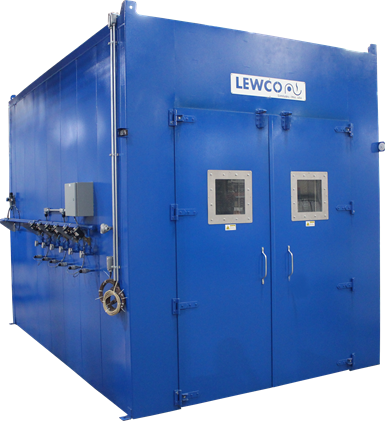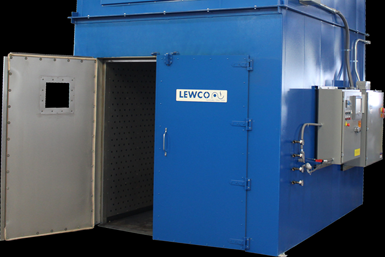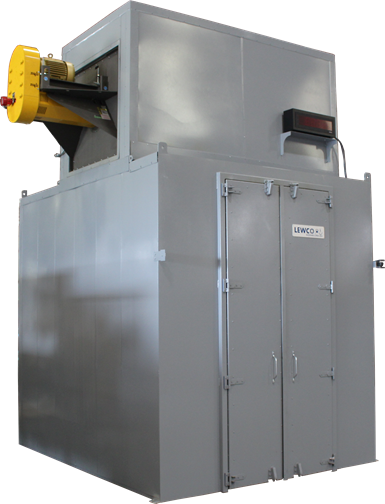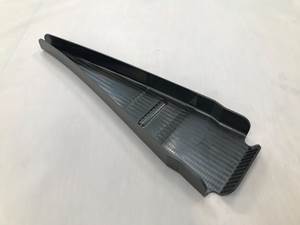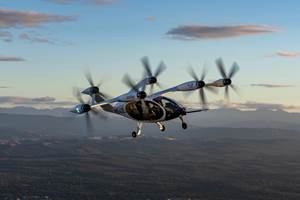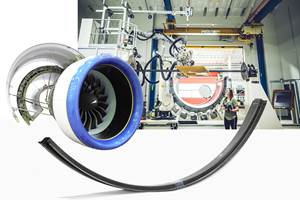Lewco supplies custom composites curing ovens for aerospace
Lewco Inc. recently supplied ovens to three customers ranging from a research laboratory to an aircraft manufacturer.
Lewco Inc., (Sandusky, Ohio, U.S.) a manufacturer of composites curing ovens, recently supplied ovens to three customers ranging from a research laboratory to an aircraft manufacturer. The ovens varied in size and capability, and they were custom made for each of the respective customers.
Lewco commissioned a large 500°F vacuum-assisted composite curing (VACC) oven to a national research laboratory, which researchers use to cure various composite parts. The electric walk in-oven features a rear mounted heater box with a heat capacity of 99 kilowatts. The oven is equipped with a 18,000 cubic feet per minute (CFM) high-efficiency circulation fan, which reportedly delivers dual airflow and provides uniform heat throughout the workspace. A temperature uniformity survey reported that the oven exceeded customer specifications of ±10°F by achieving better than ±5°F at maximum temperature.
In addition, Lewco delivered a 650°F enhanced duty electric batch oven to a world-class aircraft manufacturer. Lewco says this oven is unique as it is used for two applications: curing various aerospace composite parts and heating parts up to a maximum temperature of 650°F. The walk-in oven features a top-mounted heater box with 144-kilowatt heat capacity. The oven is equipped with a 22,000 CFM high-efficiency circulation fan that reportedly delivers dual airflow and provides uniform heat throughout the workspace. Due to some of the parts containing solvents, the oven is rated for NFPA 86, Class A and includes a 500 CFM exhaust fan. The oven is furnished with lanyards to hold the doors open while personnel enter the oven. An e-stop pull cord is included inside the oven to immediately power down the oven in case of entrapment. Included are four ½-inch national piper tapers (NPT) through wall vacuum ports with manual shut-off valves and dial pressure gauges on the exterior. All ports are connected to a 1-inch NPT common header pipe for a single connection to the customer’s vacuum source. Lewco says the customer required the oven to meet strict temperature uniformity requirements of ±10°F at an operating temperature of 650°F. A nine-point temperature uniformity test was conducted, and results were within the specifications.
Lastly, Lewco designed and manufactured an 800°F electrically heated walk-in oven that is used primarily for curing honeycomb composite structures; it also has capability for vacuum assisted composite curing. The enhanced duty batch oven features a top mounted heater-box with 180 kilowatts of heat capacity. The oven is equipped with a 24,000 CFM high-efficiency circulation fan that delivers horizontal airflow and provides uniform heat throughout the workspace. A variable speed drive is included on the exhaust fan for controlled cooling cycles and shorter purge time. The airflow volume of the oven is designed to meet strict temperature uniformity requirements. A nine-point temperature uniformity survey was conducted at 500°F and 750°F to ensure that customer requirements for their specific process have been met. Lewco says the temperature uniformity survey exceeded customer specifications of ±10°F by achieving better than ±5°F.
Related Content
ASCEND program update: Designing next-gen, high-rate auto and aerospace composites
GKN Aerospace, McLaren Automotive and U.K.-based partners share goals and progress aiming at high-rate, Industry 4.0-enabled, sustainable materials and processes.
Read MorePlant tour: Joby Aviation, Marina, Calif., U.S.
As the advanced air mobility market begins to take shape, market leader Joby Aviation works to industrialize composites manufacturing for its first-generation, composites-intensive, all-electric air taxi.
Read MoreCombining multifunctional thermoplastic composites, additive manufacturing for next-gen airframe structures
The DOMMINIO project combines AFP with 3D printed gyroid cores, embedded SHM sensors and smart materials for induction-driven disassembly of parts at end of life.
Read MoreThe potential for thermoplastic composite nacelles
Collins Aerospace draws on global team, decades of experience to demonstrate large, curved AFP and welded structures for the next generation of aircraft.
Read MoreRead Next
All-recycled, needle-punched nonwoven CFRP slashes carbon footprint of Formula 2 seat
Dallara and Tenowo collaborate to produce a race-ready Formula 2 seat using recycled carbon fiber, reducing CO2 emissions by 97.5% compared to virgin materials.
Read More“Structured air” TPS safeguards composite structures
Powered by an 85% air/15% pure polyimide aerogel, Blueshift’s novel material system protects structures during transient thermal events from -200°C to beyond 2400°C for rockets, battery boxes and more.
Read MoreDeveloping bonded composite repair for ships, offshore units
Bureau Veritas and industry partners issue guidelines and pave the way for certification via StrengthBond Offshore project.
Read More




